- Home
- Frank Delaney
Venetia Kelly's Traveling Show: A Novel of Ireland Page 2
Venetia Kelly's Traveling Show: A Novel of Ireland Read online
Page 2
Of course, Sarah had her own personal mythology, so Venetia told me. She had lived with Mrs. Haas since infancy; Sarah’s mother had disappeared when her child was no more than a few weeks old. Growing up, little Sarah had been told of her mother’s tragic and dramatic death trying to rescue a puppy from a lake called Lough Gur in County Limerick. So, when it came to her turn to be a mother, Sarah held on to her own infant with what became her life’s great passion, the drama that was her daughter.
Until I came along.
Let me tell you something now from the end of the story—to be more precise, from the beginning of the end. It’s not one of my Digressions; I just want you to get a feeling of some of the forces that were ranged against me in that long-ago intrigue.
One day, I was asked in a serious and important way to go home to my parents’ house. I agreed, and gave an indication of when I would arrive. When I got there, in the middle of the afternoon—I’m giving only the barest sketch here—I saw my father, my dear, maddening father, standing in the doorway of the cottage that we owned down by the river. He looked as though he was watching out for me. Close beside him stood a man whom I’d never seen before.
As I approached, the man ushered my father indoors. When I followed through the open door, an unseen person behind me wrapped an arm like a tentacle around my throat. I could smell the cigarette smoke on the sleeve. Straight ahead, in the middle of the room, my parents were sitting in chairs side by side. Above them stood two men pointing guns at my parents’ heads. The year was 1932, and this was Ireland, this wasn’t Chicago. I managed to stay calm, or at least to appear so; I wet my pants, but only I knew.
After a moment the forearm at my throat relaxed. It became plain that neither parent was allowed to speak to me. I saw heartbreaking appeal in their eyes, but when my father began to say, “We had no way of warning you,” one of the sentries clouted him across the head with a gun butt, and blood spurted from my father’s ear.
Through the panic of my mind I thought, This too is politics. In the 1930s there was Fascism all over Europe; why should Ireland be any different? And all politics is local.
The situation shocked me all the more because at that moment I was living in a fairy tale, a wonderland of kindness and excitement and performance and beautiful language.
I’m locating this incident here, now, because I want you to understand the swing of the thing. Like the fastest and most exotic pendulum you’ve ever heard of, my life at that time swayed between magic and danger, between enchantment and death itself. And yes, that was the beginning of the end.
Let’s stay for a moment in 1932, because that is the year central to all this, a Year of Destiny, it was called, and so it became for me. The incident in the cottage happened because in February we had a general election. Truly epoch-making, it altered the course of Irish history. What I want to say is this: The private events that so formed and perhaps distorted me occurred against a remarkable background.
Everything that year rang of passion. Where there’s passion, deceit soon follows, and the major issue of the day, the general election, backdrop to my own drama, was, like all politics, characterized by passion and deceit. The entire country, including my parents—and myself—discussed politics more fervently than monks prayed. These events of ours were played out against that national fever. When I look back now, I think that everything must have been unstable, but we didn’t know it.
I was so excited in those last months of 1931; I was on fire. And with good reason. Fierce winds of change were blowing across our little island, and the spores of turbulence were landing everywhere. We heard daily threats of Communism and Bolshevism and Fascism—all the public-life “isms” of the early twentieth century. One colossus, the tallest man in politics, was striding the national stage. His rivals in the government were attempting to close down his newspaper and haul the editor to a military tribunal. Not a few people, my parents included, feared that there might even be a gun-barrel coup d’état—by either side—before polling day.
That 1932 election finally settled the political definition of our country. It gave form to a structure that had begun to identify a nation—out of old clay, new shapes. At the same time we became a model of how democracies evolve, how a people can go forward hopefully while not abandoning their past. This was a battle between the fresh politics of the young state’s first government, which had been in charge for ten years, versus forces that represented ancient and unquenchable warlike passions but hadn’t been able to get their hands on the levers of power.
Of course it was all still being run by politicians. We have an old saying here: “No matter who you vote for, the government always gets in.” My father, who had what he called a “flypaper mind,” loved the writings of Ambrose Bierce and could quote at length from The Devil’s Dictionary, one of his favorite books. And in this period of fierce shenanigans, Bierce’s quotation defining politics rang through our house every day—“the conduct of public affairs for private advantage.”
Mother and I became so used to it that whenever the words came from my father’s lips, we chimed in like a satire’s chorus. If we’d had a tune to it we could have sung it.
Moving from the general to the particular—I was guaranteed a ringside seat in the election. Even if matters hadn’t suddenly assaulted us, even if my father hadn’t done something so wild, so out of character, I’d have been in the thick of it all, because I already knew that I had an official job. At eighteen I was of age to serve as the clerk at our local polling booth in the village.
The day itself was memorable for a number of reasons. Our local teacher Mr. O’Dwyer acted as polling officer; he and I sat side by side at a table in the schoolhouse. As you’ll see later on, I was there against all the odds, and, given everything that was going on, plus the possibility of wild embarrassment on the day itself, I think it was heroic of me to turn up.
My job was to supervise the Register of Electors, verifying the names and addresses of the people who came in and asked for a ballot paper. The pencil with which I did this task was specially provided, Mr. O’Dwyer told me, by the government in Dublin—the “Mighty Pencil,” he called it.
He mentioned one word over and over—“personation.” Personation is an offense under the law—it should be called “impersonation”—and it involves entering a polling station, asking for a ballot paper under a name not your own, and then voting: in short, pretending to be another person. Already well known, it became a vogue word during that election; we, the Irish, loved the slogan “Vote early, vote often,” and I saw it at first hand that day.
Polling was unusually heavy; we had a turnout in our area of 90 percent. Personation attempts also rose on that tide. Throughout the twelve hours, Mr. O’Dwyer challenged as many as twenty or so voters. The election fell on a Tuesday, 16 February, deliberately chosen as just an ordinary working day. Voting hours ran from nine in the morning until nine in the evening, and shortly after we opened the school door a tall gentleman strode in like a general, walked past Mr. O’Dwyer, and made straight for me.
“Name and address, please, sir?” I said, as instructed.
“Jeremiah Quinn, Ardkeeran, Mantlehill.”
I looked up the letter Q on my thick sheaves of lists, and found the name and address. Just as I was about to brandish the Mighty Pencil, tick his name, and hand Mr. O’Dwyer the voting paper—which the polling officer had to validate with a little stamping machine—Mr. O’Dwyer said, “Is that Jim Kennedy I see before me?” He said it pleasantly and the man didn’t move a muscle.
“Turn around, Jim, ’til we have a look at you,” said the teacher.
Mr. “Quinn” or Mr. “Kennedy,” or whatever his name was, marched out.
Shortly after that, a lady came in, older than my mother, a heavy woman in an old burgundy-colored coat like a bad carpet. She gave the polling officer a wary look—Mr. O’Dwyer had his head down at the time. But when she gave me the name and address, Mr. O’Dwyer raised his h
ead and said, “Well, well. And the dead arose and appeared to many. I was at your funeral, Agnes. That was a good send-off.”
She also walked out fast, and he muttered to me, “They’ll be up out of their graves today.”
He explained: Individuals from outside the district were coming to our village to vote. Hoping that we in the polling station wouldn’t notice or know, they were giving us names they’d taken off headstones. And of course many of those names mightn’t yet have been struck off my voting registers, which weren’t always up to date.
Mr. O’Dwyer said, “Why don’t they do the job right and hire actors? At least they’d be convincing.” He added, “Wait ’til you see. Those two will be back here and they’ll vote as themselves.” Which they did.
The antics went on all day. Voters who had cast their ballots earlier came in late, in different clothes, giving different names.
Mr. O’Dwyer, cheery as ever, said, “Oh, John. Is it colder out? You were wearing no hat this morning.” And he said, “D’you know what, Mrs. Glacken? You looked ten years younger this morning. Is it the headscarf?”
Once I had grasped what was going on, my antennae waved like a bug’s. By the end of the day I was myself catching people who had already voted. The Mighty Pencil? I wielded it like a sword.
Did we get them all? I think so. The teacher was certainly very complimentary when he met Mother a few days later, and she told me that Mr. O’Dwyer said I’d make a very good detective. (That remark contributed to my burdens, and I’m afraid that Mother taunted me with it as the weeks went by.)
Prosecutions followed. We had a neighbor, Jack O’Donnell, an activist with a fierce political appetite. Convicted of voting twice in the election, he had to pay a large fine, and he will go to his grave known as “Jack O’Donnell–Jack O’Donnell.”
Speaking of political tricksters, let me now unveil the father of Sarah Kelly, grandfather of Venetia. His full name, Thomas Aquinas Kelly, was a comic misnomer. The only moral inquiries this man ever made had to do with money—the inside track, the shortcut, the influence, the bribe, the pull, the means, typically foul, of getting what he wanted. He came out of the womb a criminal.
Everybody knew him by his nickname: “King” Kelly. I believe he gave it to himself. Out in Montana he told them that when he was growing up in Ireland he had been nicknamed King. When he came back to Ireland he told them that in Montana they’d christened him King. You can’t dismantle a circular myth.
Like so many crooks, King Kelly had marvelous natural power. He wore check waistcoats and well-cut tailoring, but never learned that a brown suit says “Not a gentleman.” His shoes, handmade by a cobbler in Dublin, came from exquisite leather, and when he wanted something from somebody he loomed in over them with his big frame and poked them with a finger as thick as a shillelagh.
Those who knew him—including myself—we admitted that we enjoyed King Kelly. There was guilt in the admission, but there was also pleasure. He was a gale of good company, and not a word from his mouth could be believed. He had a rich voice, full of Irish and with some American, and no better dinner companion have I known. But he was as crooked as a ram’s horn; if King Kelly said he’d pray for you, you’d be sure of Hell.
He told me wonderful tales, mostly lies, but very entertaining, especially to somebody like me, who’s interested in how tales are told. I wrote down this particular story; I ask you to remember it, see how illuminating it will become.
There was a man I knew one time [all King Kelly’s stories began like that] when I was buying land in Galway, not so many years ago. And I was talking to this man when a lady approached me and said to me, “Are you the famous King Kelly?” I said I was, and she said to me, “I’d like a word with you, please, sir.”
Before she drew me aside, the man I was with whispered in my ear, “Don’t go near her—she’s a fairy queen.”
“She’s a what?” I said, but by then it was too late.
Now I was worried, I’ll admit to that, because there’s strange people over there in Galway, people with purple eyes and jaws like horses, people who wear their hats upside down on their heads, and when they shake your hand you don’t know whether they’re trying to give you one of their fingers or take away one of yours.
So anyway I walk off a little bit with her and she says to me, “I don’t want you to buy that land.”
“What land?” says I, a bit baffled in myself, because I hadn’t been talking to the man a bare ten minutes, and nobody else knew he was selling land.
“My family used to own it,” she says. “Tell me you won’t buy it and I’ll grant you my favor.”
She was a tidy-size woman, and she had a bosom as round as a brace of bells. In her right eye there was a hazel fleck in the gray, and she had lips so pursed and plump they could whistle by themselves. But land is land, and so I said to her, “My dear young woman, I don’t know what you’re talking about.”
She looks at me and she lays a hand on my arm, and she says to me, “King Kelly, I offered you my favor and you said no! Well, now, here’s my disfavor,” and she tightened her grip on my arm.
It wasn’t a tight grip, but all of a sudden my arm began to grow cold. And then it grew colder. And then it froze. And I looked down at my hand and it was as blue as the sea. And in front of me there was this woman standing like a proud little person, her silk blouse high at the neck, her face and the rest of her excited as a hen at a cockfight.
“Madam,” I says to her, “is it that you’re freezing my arm?”
She said, “That’s the wintry blast of my disfavor.”
Well, the arm got colder and colder, and then it began to hurt because the skin was beginning to shrink, and the tears came to my eyes, as the tears will do in the cold weather or when in pain. But here’s the next thing I found: My tears were ice-cold. They were just above the point where water freezes and they were barely squeezing out of my eyes. Talk about bewildered—I didn’t know whether it was Tuesday or Easter.
The little woman never took her eyes off mine. She stared into me, into my soul. Her face reddened a little at the cheeks, always a moment I find exciting in a lady. It was her left hand that lay on my arm, and next she took her right hand and placed it on my opposite hip. Oh, dear God. Instantly the bone froze.
“Madam,” says I, my jaw slowing down as it froze. “I’ll never buy land in this county again.”
She released me and said, pretty as pie, “Thank you, King Kelly.”
I said to her, “If that’s what your disfavor is like, let me see your favor?”
But I never got an answer. She walked away from me and I turned around to my friend, the man I was going to buy the land from—but he was gone. And when I looked back at her, she was gone too, and we were out in the middle of the country with no place to hide, so she must have vanished up into the sky. I ran out of County Galway that night like a man escaping from his mother-in-law.
King Kelly told me that story, and many similar, while drinking big liquors and smoking great cigars, the veins in his strong cheeks like the lacy filaments of red leaves. He liked to talk forever, as did his daughter, Sarah, as did his granddaughter, Venetia, as did Mrs. Haas, whom King Kelly hated as much as she hated him; “Shark-face,” he used to call her. So much for Sarah’s insistence that they all adored one another. Those four people form the first half of the cast in this drama that took over my life when I was still in my tenderest years.
Here we meet the other main players—beginning with my father. Venetia Kelly said to me once, “Your father has the most beautiful skin of any man.” When, sometime later, I repeated that observation to my mother—without, of course, attributing it to Venetia—Mother said, “Yes. It mirrors his dear mind.” That she said it without a hint of bitterness told me a lot.
Forget the fashionable belief that sons never get to know their fathers; I came to know mine very well. I loved him, truly loved him, this tender man of great kindness and haphazard brilliance, this cle
ver man who was as wise as an oracle and as stupid as a dribbling fool. I’m sure you’ve known people like him. We Irish have a lot of them—men who can be smarter than scientists and stupid as dolts.
There were times when I wondered was I, his only child, the only person who saw him fully, the one human being who knew that he wasn’t at all what he appeared to be? Beneath the farmer’s clothes, the muddy boots, the stained old tweed cap, the hands with the texture of wood and leather, the harsh instructions to lazy workers, the jovial talking to the cows as he milked them, I saw a different man. Deep inside, my father was loving, committed, sophisticated, and civilized, and with a vivid sense of humor.
Also, as I saw, he was mad when he wanted to be—stone mad, mad as a cut snake, writhing this way and that, convulsing with passion.
Sometimes Mother would surprise me with a gratifyingly accurate rendition of him, because for all her difficulties with him, she loved him more than she loved her own life. In a society where the word love had no above-the-surface currency, where sentimentality in relationships was a taboo, where couples circled around each other in duty and agreement rather than affection or caprice, she loved him more than she loved me, and I don’t mind that.
So if in passing she gave me some insight into him, I would first inhale it like a drug, and then reel back in surprise at her perception.
“Your father is a century late,” she said once. “He should have lived in Lord Byron’s time, with all the other wild men.”
Another time she said, “Your father is a useless card player. Everything shows in his face.”
Mother was brisk and practical, or so I used to think, and didn’t usually show much insight into people and things. And then she’d make a revealing observation about my father; or I’d go back and recall the Incident of the Animal.

 Tipperary: A Novel of Ireland
Tipperary: A Novel of Ireland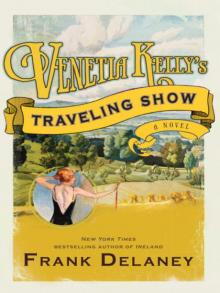 Venetia Kelly's Traveling Show: A Novel of Ireland
Venetia Kelly's Traveling Show: A Novel of Ireland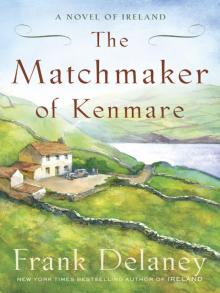 The Matchmaker of Kenmare
The Matchmaker of Kenmare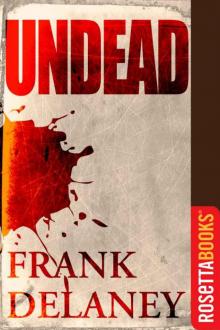 Undead (Kindle Single)
Undead (Kindle Single)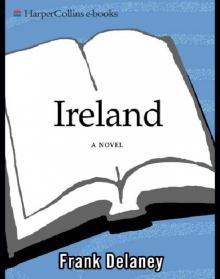 Ireland
Ireland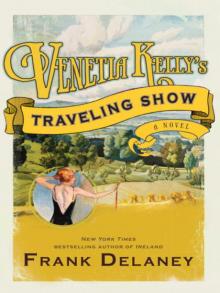 Venetia Kelly's Traveling Show
Venetia Kelly's Traveling Show Tipperary
Tipperary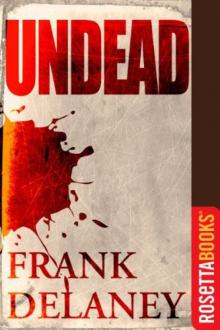 Undead
Undead